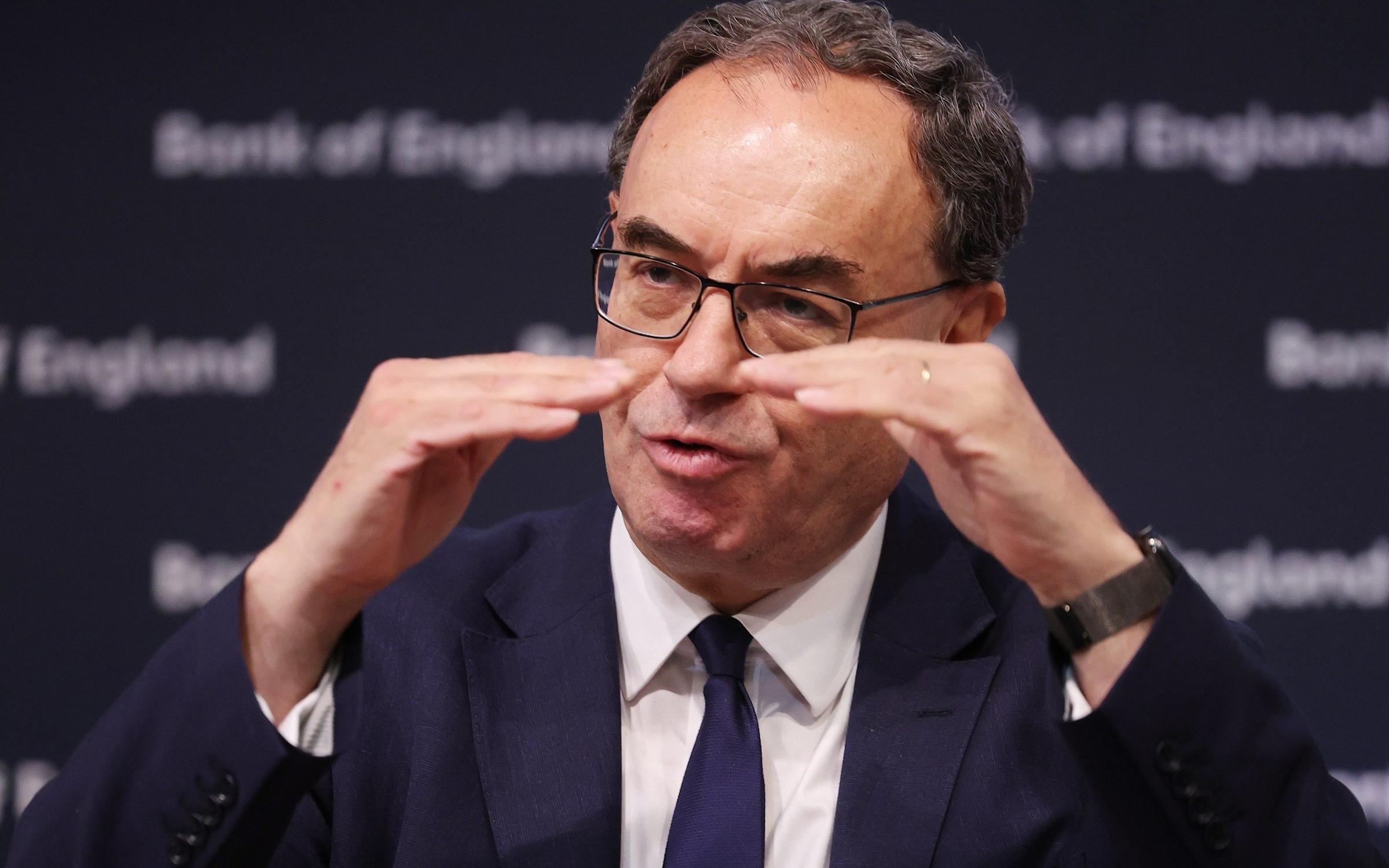
Taxpayers would save up to £5bn next year if Andrew Bailey overhauls the Bank of England’s controversial programme of bond sales, analysts have calculated.
Deutsche Bank has said Rachel Reeves would be spared from transferring billions of pounds to Threadneedle Street if it stopped selling long-term debt amid a dramatic drop in bond prices.
The Bank is currently unwinding the stockpile of gilts it amassed during the financial crisis and lockdown, when it created almost £900bn to boost the economy.
When interest rates were at record lows of 0.1pc during the pandemic, the Bank earned far more on its returns from government bonds than it had to pay in interest to commercial banks.
However, this reversed dramatically once interest rates started to rise.
The Bank is now also actively selling gilts back to the market as part of so-called quantitative tightening (QT), crystallising billions of pounds of losses for the taxpayer.
This has since added further strain to Britain’s public finances, prompting calls for the Bank to overhaul this programme when it makes a key decision on future bond sales in September.
Nervous investors have dumped long-dated bonds around the world amid uncertainty about the economic outlook, resulting in a big dip in prices, which move in the opposite direction to yields.
Sanjay Raja, chief economist at Deutsche Bank, said the Treasury faced a £24bn bill in the coming year if it continues to follow a policy of selling down its stockpile of short-term, medium and long-dated debt evenly.
By contrast, if it restricts active sales to short and medium-term gilts, that bill could come down to £18.9bn – £5bn less – assuming Threadneedle Street continues to reduce its stockpile of bonds by £100bn a year.
Markets believe the Bank will slow down the pace of sales to £75bn, which Deutsche said would result in an even lower bill of £15.6bn if policymakers avoid selling long-dated debt.
Reform has advocated stopping active bond sales altogether.
The Treasury has already transferred nearly £90bn to the Bank of England to cover losses incurred as a result of QT, including £53bn in interest payments to commercial lenders and £37bn on losses from active bond sales.
Deutsche highlighted that sales of its longer-dated debt account for roughly two thirds of all QT valuation losses, amounting to just under £20bn. This dwarfs the £5bn loss the Bank has incurred from selling short-term debt.
Mr Raja said: “From a borrowing perspective, less QT means less borrowing and less issuance. Moving from a £100bn envelope to £75bn would result in some meaningful savings on the borrowing side.
Story Continues“Skewing sales away from longs to shorts/mediums evenly would also result in some modest savings. For a £100bn QT envelope, we estimate savings to be a non-negligible £5bn. No active sales would mean substantial savings, but only in the near-term.”
Mr Bailey is coming under intense pressure to overhaul QT as losses continue to mount. He recently signalled that the “global steepening of bond curves” would “play into” the Bank’s looming decision on active bond sales.
Richard Tice, the deputy leader of Reform, urged the Bank to rethink the programme. He said: “They shouldn’t be selling anything at all. Zero.
“We now know that it’s driven up gilt yields, and the perception is it’s going to carry on keeping yields higher than otherwise should be. So what the Bank should be doing immediately is cancelling all further QT.”
Broaden your horizons with award-winning British journalism. Try The Telegraph free for 1 month with unlimited access to our award-winning website, exclusive app, money-saving offers and more.














